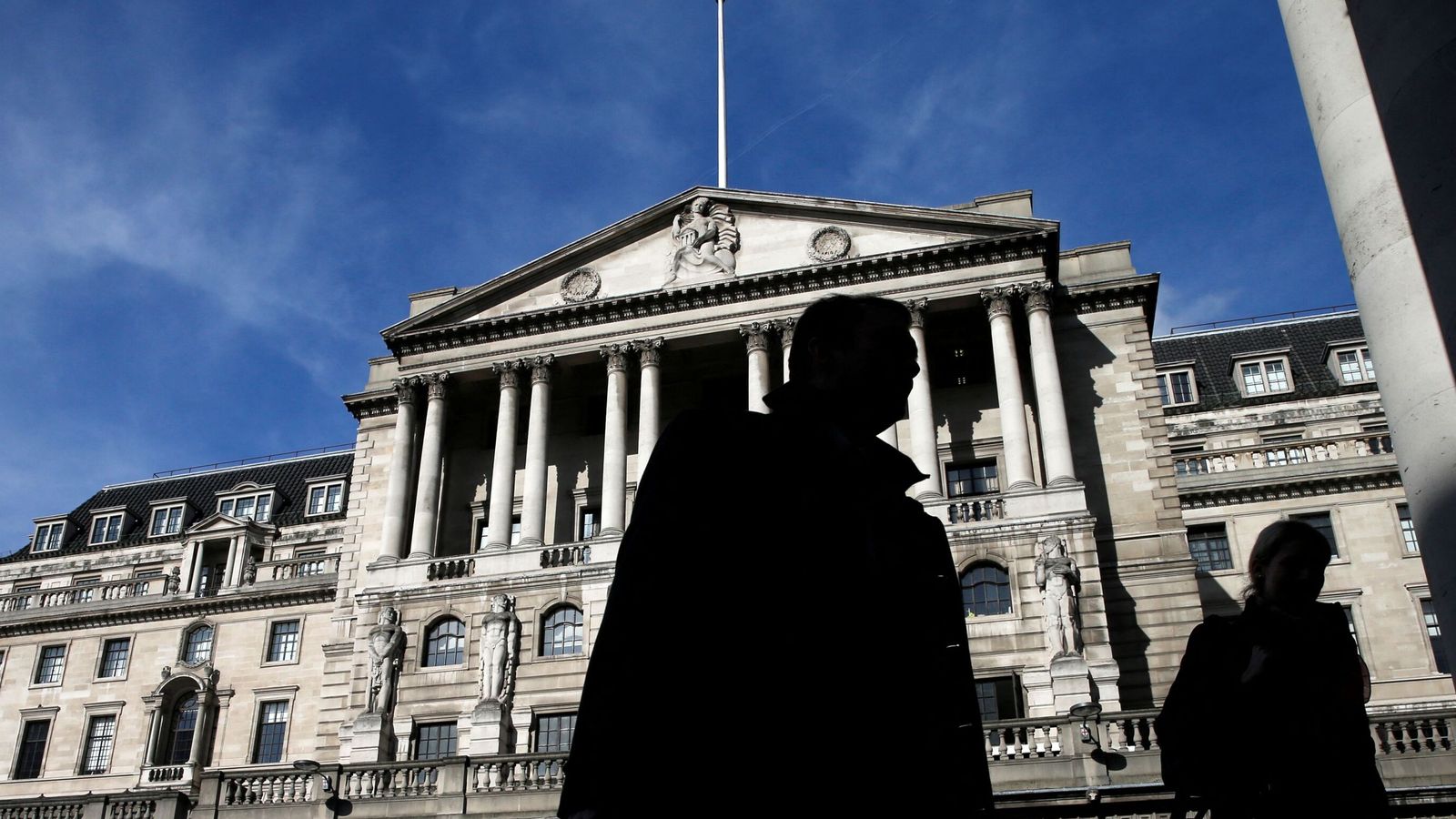David Roberts, the former Nationwide chairman, has emerged as a leading candidate to head the Bank of England’s oversight board – a crucial role as it battles to combat the runaway inflation that threatens to tip Britain into recession.
Sky News has learnt that Mr Roberts, who left Britain’s biggest building society earlier this year, is regarded as a frontrunner for the chairmanship of the Court of the Bank of England – one of the most influential posts in British finance.
Mr Roberts, who also served on the board of Lloyds Banking Group and was a long-serving executive at Barclays, is now chairman of Beazley, the insurer.
It was unclear on Tuesday which, if any, other candidates, remained in contention for the post, or whether the process of selecting a new chair of Court had been disrupted by the ongoing political turbulence in Westminster.
If he does land the Bank of England job, Mr Roberts may be obliged to step down from Beazley given its oversight by the Bank’s Prudential Regulation Authority.
The Bank of England Court plays a central role in holding the governor, Andrew Bailey, and the organisation more broadly to account.
Bradley Fried, who has chaired the Court since 2018, is due to step down from the £48,000-a-year post shortly.
Heathrow telling airlines to stop selling summer tickets is ‘ridiculous’, says global airlines chief
The retail outlook appears gloomy but, as PepsiCo shows, there’s more to it than that
Lego halts commercial operations in Russia indefinitely due to ‘extensive disruption’
Mr Roberts would bring decades of experience in financial services to the Court during one of the most crucial periods in the Bank’s recent history.
His other boardroom experience includes the vice-chairmanship of NHS England.
Read more:
Inflation hits fresh 40-year high of 9.1%
‘I can’t take it anymore’ – We asked Britons how the crisis is affecting them
Food inflation to accelerate over summer and prices to stay high
The appointment of the chair of Court requires the approval of the Queen and the recommendation of the chancellor, Nadhim Zahawi, and Boris Johnson, the outgoing prime minister.
Mr Zahawi has already signed off one key appointment during his first few days in the job, in the form of Ashley Alder’s nomination as chairman of the Financial Conduct Authority.
There have been reports of tensions in recent months between Mr Bailey and the government over the Bank’s struggle to rein in soaring inflation.
Many economists believe, though, that the governor’s job will be made significantly tougher if the winner of the Conservative leadership contest seeks to deliver – as seems likely – a programme of tax cuts.
The Court is the Bank of England’s governing body, and is responsible for setting its objectives and strategy, and ensuring the effective discharge of the Bank’s functions and the most efficient use of its resources.
It plays no role, however, in the formulation of monetary policy.
Among the requirements for the role, according to the Treasury, is “the ability to scrutinise and challenge the actions of the executives of the Bank in running the institution”.
The Court’s current members include Dorothy Thompson, the former chief executive of Drax, Baroness Harding, the former TalkTalk boss, and Frances O’Grady, the TUC general secretary.
According to a recruitment advertisement placed online by the Treasury, the selection panel for the chair includes Baroness Harding, Charles Roxburgh, one of the Treasury’s top officials, and Terry Miller, senior independent director of the housebuilder Galliford Try.
Among the prominent City figures who have chaired the Court are Sir John Parker, the serial FTSE-100 chairman, and Sir Anthony Habgood, former chairman of Whitbread and RELX.
The Treasury was contacted for comment on Tuesday evening, while the Bank of England declined to comment.








